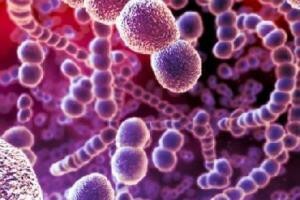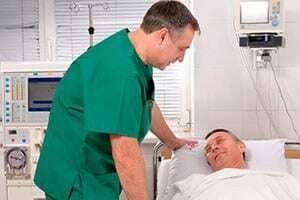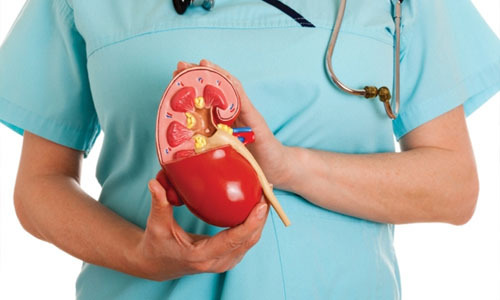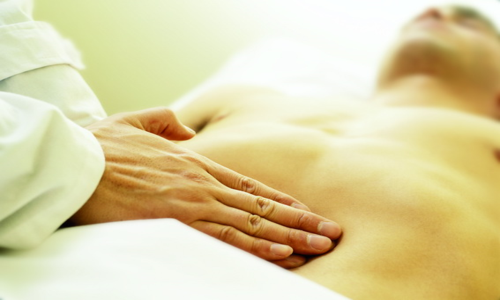Pain in the urethra in men appears for various reasons. This phenomenon is only a symptom of any pathology in the genitourinary system. The cause of the disease can only be determined by a specialist. Timely treatment of the disease will help to remove pain and maintain sexual function. If the symptom is ignored for a long time, then the pathology can go into a chronic form.

Structure of the urinary system
To understand the sources of pain, it is necessary to know the structure of the urinary system. It includes the following organs:
- Bladder;
- Output channels;
- Sphincters;
- Urethral canal.
The urinary system consists of organs and tissues. The sex organs are directly related to the urinary organs. The genital system includes such organs as: testicles, prostate gland, seminal ducts. The urethra has an outlet to the urethra, as well as the vas deferens. Any pathology in these organs causes inflammation, the symptom of which is pain.
Causes of an unpleasant symptom of
In the pelvic organs, inflammatory processes of various etiologies often occur. Inflammation can occur when infected with a pathogenic microorganism. In the urethra there is a specific microflora. Under the influence of various factors, atypical microorganisms appear in it. They destroy useful bacteria and take their place. Long stay of pathogenic flora causes necrosis of the tissues of the urethra. The process of decomposition causes pain.
The most dangerous are microbes that cause venereal diseases. Such bacteria include:
-
 Chlamydia;
Chlamydia; - of the Gordenelle;
- Staphylococci;
- Mycoplasma;
- Ureoplasm.
Venereal diseases affect the appearance of many unpleasant symptoms. The man has pain in the urethra, impurities in the urine are detected, and various tumors may appear. All pathogenic bacilli can be found in the laboratory under the sowing of a smear from the urethra. Treatment is appointed by the doctor.
Internal and external genital tract injuries also cause pain in the urethra. Congestion of the soft tissues of the penis causes severe pain and discomfort of the man. Various wounds can become a source of infection of the genitourinary system. With any trauma to the genitals, the patient should immediately contact the urologist to eliminate pathologies.
Inflammatory processes in the urethra occur due to the decline of immunity. The general state of the body at this point is weakened. The organism is easily susceptible to pathogenic microorganisms.
For any kind of pain, the cause should be set by the urologist. Self-treatment leads to an aggravation of the problem.
Signs of a pathology
A patient who experiences pain, draws attention to the appearance of other symptoms. Such symptoms include the following phenomena:
- Obstruction of urination;
- Decreased potency;
- Irritability;
- Sleep disorder;
- Frequent trips to the toilet;
- Sometimes itching occurs;
- Allergic rashes on the genitals.
When collecting an anamnesis, the doctor determines which additional symptoms have occurred in association with pain in the urethra. The combination of several can indicate the presence of a man such pathologies as: chlamydia, cystitis, urethritis or prostatitis. Then the patient is sent for a full examination and the delivery of tests.
Diagnosis of pathology
 A man suffering from severe pain syndrome should undergo a full hardware examination. Ultrasound diagnosis allows you to examine the organs of the small pelvis and establish the cause of the pain. On the screen, a specialist can note the presence of seals in the tissues, a change in the shape of the organ or the presence of stones in the bladder.
A man suffering from severe pain syndrome should undergo a full hardware examination. Ultrasound diagnosis allows you to examine the organs of the small pelvis and establish the cause of the pain. On the screen, a specialist can note the presence of seals in the tissues, a change in the shape of the organ or the presence of stones in the bladder.
If the cause is not identified, the patient is sent to magnetic resonance imaging. The device allows you to view the internal organs in a three-dimensional image. The MRI method reveals pathology.
A man needs to undergo an unpleasant procedure - taking a smear from the urethral canal. Patients experiencing pain are usually afraid of this procedure, but it is necessary. The taken smear is sent to the laboratory for the study. Specialists select microorganisms from the sample. Bacteria are placed in a special cup, where they multiply actively. Cultivated bacteria are exposed to antibiotic substances. This method allows you to establish the type of microbe that caused pain, and a drug that can destroy it.
In order to make a diagnosis it is necessary to pass a detailed blood test. In the patient's blood, the qualitative and quantitative content of erythrocytes, leukocytes and non-native cells is established. If the erythrocyte sedimentation rate is increased and a large number of erythrocytes is detected, this indicates the presence of an inflammatory process in a man. In some patients, pathogenic cells are found in the blood. Such cells cause viral diseases in the human body. The virus of AIDS and HIV is very dangerous.
After complete examination, the results are transmitted to the treating physician. On them, he establishes a diagnosis and prescribes treatment.
Cystitis
Cystitis often causes pain in the urethra. The disease occurs due to various colds. The process of inflammation begins to develop in the bladder and passes into the urethral canal. Urination with cystitis is difficult. A person often goes to the toilet. Urine is excreted drip, the bladder is not emptied completely. If the patient is diagnosed with cystitis, then the treatment is carried out with the help of medications.
 Medications for the treatment of cystitis include three pharmacological groups:
Medications for the treatment of cystitis include three pharmacological groups:
- Anti-inflammatory drugs;
- Antibiotic drugs;
- Diuretics.
Cystitis can have two main forms of flow. The disease proceeds in a chronic or acute form. Chronic cystitis occurs imperceptibly for the patient, the symptom is a rare cutting pain in the urethral canal. Treatment is long. Anesthetics are used in the initial stages of therapy. The acute form of cystitis is accompanied by constant cutting pain and fever. Some men get body temperature. Treatment of acute pathology should be carried out under inpatient conditions under medical supervision.
Urethritis
Pathology arises from bacteria that are uncommon for the urethra. It is often possible to detect the presence of staphylococcus in the microflora. The bacterium causes inflammation along the entire length of the urinary tract. Treatment includes antibiotic and antimicrobial drugs.
The usual treatment regimen is carried out for 5-7 days. The patient is prescribed an antimicrobial drug - "metronidazole" and antibiotics. Antibiotic drugs are selected based on the sensitivity of microorganisms. Staphylococcus can not be treated immediately. More effective in this case is the appointment of levofloxacin. The drug has a high absorption and rapid exposure. The action of the substance is a violation of the integrity of the membranes of pathogenic cells. The destroyed wall of the cell leads to its death.
Urethritis causes pain in the groin and penis. The pain concentrates in the urethral ring and the sphincter of the bladder.
Prostatitis
 Prostatic adenoma appears for various reasons. Prostatitis can be contagious and non-infectious. Inflammation occurs in the prostate gland. The walls and soft tissues of the prostate enlarge and thicken. Complex forms of pathology lead to a change in the shape of the prostate gland. The prostate has a connection with the urethra. If a pathology arises in it, the patient experiences pain when urinating.
Prostatic adenoma appears for various reasons. Prostatitis can be contagious and non-infectious. Inflammation occurs in the prostate gland. The walls and soft tissues of the prostate enlarge and thicken. Complex forms of pathology lead to a change in the shape of the prostate gland. The prostate has a connection with the urethra. If a pathology arises in it, the patient experiences pain when urinating.
Therapy of pathology depends on the type and type of the disease. Treatment is complex. There are three methods of therapy:
- Medication;
- Operating;
- Massage.
The operation is assigned to the patient in severe forms of the disease. Pain extends to all organs of the genitourinary system. The most famous surgical procedure is resection. Pathogenic tissues are removed through the urethral canal without an incision in the abdominal region.
Drug therapy is selected by a specialist. Treatment depends on the type of prostatitis. Chronic non-bacterial forms can be treated with non-steroidal anti-inflammatory drugs. Other types of prostatitis require antibiotic treatment.
Pain in the urethra can disappear under the influence of analgesics. Long-term use of pain medications lubricate the picture of the disease. The patient has a reduced sensitivity to the active substance and it is necessary to select a stronger drug.
Genitourinary system requires special attention from men. Pain and difficulty urinating is an occasion to consult a doctor.



